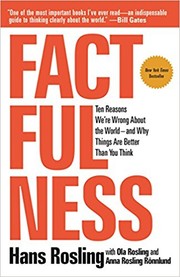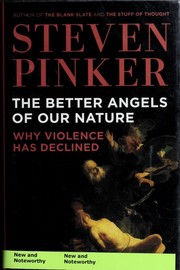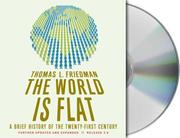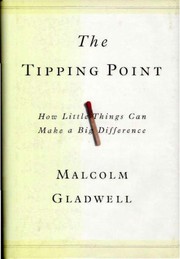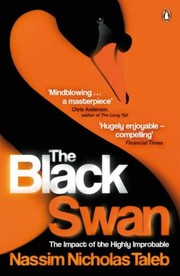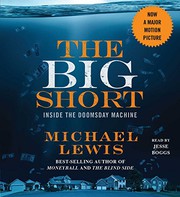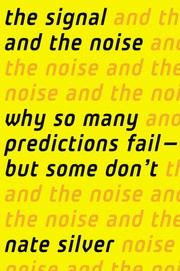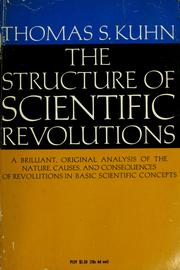Are you curious about the inner workings of the world around you? Whether you’re interested in politics, economics, sociology, or science, there’s a book on how the world works for you. From thought-provoking analysis to eye-opening revelations, these how the world works books offer valuable insights into the complex systems and forces that shape our society. Join me as we explore the 20 best books about how the world works, and gain a deeper understanding of the mechanisms that drive our world.
Contents
- 1 20 Best Books About How The World Works
- 2 Sapiens: A Brief History of Humankind
- 3 Guns, Germs, and Steel: The Fates of Human Societies
- 4 Factfulness: Ten Reasons We’re Wrong About the World—and Why Things Are Better Than You Think
- 5 The Better Angels of Our Nature: Why Violence Has Declined
- 6 The World Is Flat: A Brief History of the Twenty-first Century
- 7 The Tipping Point: How Little Things Can Make a Big Difference
- 8 The Innovators: How a Group of Hackers, Geniuses, and Geeks Created the Digital Revolution
- 9 The Power of Habit: Why We Do What We Do in Life and Business
- 10 Thinking, Fast and Slow
- 11 The Black Swan: The Impact of the Highly Improbable
- 12 The Sixth Extinction: An Unnatural History
- 13 The Age of Surveillance Capitalism: The Fight for a Human Future at the New Frontier of Power
- 14 The Uninhabitable Earth: Life After Warming
- 15 The Gene: An Intimate History
- 16 The Emperor of All Maladies: A Biography of Cancer
- 17 The Immortal Life of Henrietta Lacks
- 18 The Big Short: Inside the Doomsday Machine
- 19 The Signal and the Noise: Why So Many Predictions Fail—but Some Don’t
- 20 The Righteous Mind: Why Good People Are Divided by Politics and Religion
- 21 The Structure of Scientific Revolutions
- 22 Conclusion
- 23
- 24 Books about Female Doctors: 2024's Best Titles
- 25 Top 20 Best Books on Jim Crow Laws:2024 Edition
- 26 Discover Best Education In America Books: 20 Key Titles, 2024 Updated
20 Best Books About How The World Works
Sapiens: A Brief History of Humankind
by Yuval Noah Harari
Sapiens: A Brief History of Humankind by Yuval Noah Harari is a thought-provoking book on how the world works, taking readers on a journey through the history of Homo sapiens from the Stone Age to the present day. Harari explores the key developments and revolutions that have shaped the course of human history, from the Cognitive Revolution that sparked the rise of Homo sapiens to the Agricultural Revolution and the Scientific Revolution. The book offers a compelling look at the interconnectedness of human societies, cultures, and economies, and how these factors have influenced the trajectory of our species. Through engaging storytelling and insightful analysis, Harari challenges readers to reconsider their understanding of humanity’s past and present, offering new perspectives on the forces that have shaped our world. Sapiens is a captivating and enlightening book about how the world works, offering a fresh and compelling take on the history of humankind.
Guns, Germs, and Steel: The Fates of Human Societies
by Jared Diamond
Guns, Germs, and Steel: The Fates of Human Societies by Jared Diamond is a fascinating exploration of the factors that have shaped human history. This thought-provoking book delves into the reasons behind the global inequality of wealth and power, examining the roles of geography, agriculture, and technology in shaping the destinies of different societies. Diamond’s compelling narrative takes readers on a journey through time, offering insights into the interconnectedness of human civilizations and the impact of environmental and geographical factors on their development. This insightful book about how the world works challenges conventional wisdom and offers a fresh perspective on the forces that have shaped the modern world. Whether you’re a history buff or simply curious about the book on how the world works, Guns, Germs, and Steel is a must-read for anyone seeking to understand the complex tapestry of human history.
Factfulness: Ten Reasons We’re Wrong About the World—and Why Things Are Better Than You Think
by Hans Rosling
Factfulness: Ten Reasons We’re Wrong About the World—and Why Things Are Better Than You Think by Hans Rosling is a captivating book on how the world works. Rosling, a renowned public health expert, challenges the common misconceptions about the state of the world and presents data-driven evidence to prove that the world is much better off than we often believe. Through engaging storytelling and compelling statistical analysis, Rosling explains why our perceptions of global trends are often skewed and offers a refreshing perspective on the progress and positive developments happening worldwide. This eye-opening book about how the world works is a must-read for anyone seeking a more accurate and optimistic understanding of the world we live in. It provides valuable insights into global issues and encourages a more fact-based and nuanced approach to understanding the state of the world.
The Better Angels of Our Nature: Why Violence Has Declined
by Steven Pinker
The Better Angels of Our Nature by Steven Pinker is a groundbreaking book on how the world works, delving into the history and psychology of violence. Pinker argues that despite the prevalent belief that the world is becoming more violent, the data shows that violence has actually declined over time. He explores the factors and forces that have contributed to this decline, from the rise of organized states to the spread of empathy and reason. Pinker’s thorough research and engaging writing style make this book about how the world works a fascinating and thought-provoking read. By examining the trajectory of human history, Pinker offers an optimistic outlook on the future, challenging readers to reconsider their assumptions about violence and human nature.
The World Is Flat: A Brief History of the Twenty-first Century
by Thomas L. Friedman
The World Is Flat by Thomas L. Friedman is a compelling book about how the world works in the 21st century. This bestseller offers a captivating overview of the forces that have leveled the global playing field, making it possible for individuals, businesses, and countries to collaborate and compete in unprecedented ways. Friedman explores the impact of technology, globalization, and communication on our interconnected world, illustrating how these factors have transformed our economic, political, and social landscape. With insightful analysis and real-world examples, the book provides a thought-provoking look at the opportunities and challenges presented by this new era of global integration. Whether you’re a student, professional, or simply curious about the modern world, The World Is Flat offers a fascinating perspective on the dynamics of our interconnected planet.
The Tipping Point: How Little Things Can Make a Big Difference
by Malcolm Gladwell
The Tipping Point: How Little Things Can Make a Big Difference by Malcolm Gladwell is a fascinating book about how small changes can lead to major shifts in society. Gladwell explores the concept of the “tipping point,” the moment when an idea, trend, or behavior crosses a threshold and spreads like wildfire. Through engaging stories and compelling examples, he delves into the factors that contribute to tipping points, from the influence of a few key individuals to the power of social epidemics. This thought-provoking book on how the world works offers valuable insights into the dynamics of social change and the mechanisms behind the spread of ideas. Whether you’re interested in sociology, psychology, or simply curious about how the world works, The Tipping Point provides a fresh perspective on the forces that shape our society.
The Innovators: How a Group of Hackers, Geniuses, and Geeks Created the Digital Revolution
by Walter Isaacson
The Innovators by Walter Isaacson is a captivating book on how the world works, chronicling the history of the digital revolution. Isaacson takes readers on a journey through the lives of the brilliant minds who have shaped the modern technological landscape, from Ada Lovelace and Alan Turing to Bill Gates and Steve Jobs. Through engaging storytelling, Isaacson explores the collaborative and innovative spirit of these hackers, geniuses, and geeks who have transformed the way we live, work, and communicate. The book provides a fascinating insight into the interconnectedness of ideas and the evolution of technology, highlighting the importance of teamwork and creativity in driving progress. Whether you’re a tech enthusiast or simply curious about how the world works, this book offers a compelling and informative read.
The Power of Habit: Why We Do What We Do in Life and Business
by Charles Duhigg
The Power of Habit by Charles Duhigg is a captivating book on how the world works, delving into the science behind habits and their impact on our lives and businesses. Duhigg explores the neurological processes that drive habits and how they can be transformed to yield positive changes. Drawing on examples from companies like Procter & Gamble and Starbucks, as well as individuals and social movements, he illustrates how habits shape our actions and outcomes. The book offers practical strategies for identifying and reshaping habits to achieve personal and professional success. Duhigg’s engaging storytelling and insightful research make The Power of Habit a compelling read for anyone interested in understanding the mechanics of behavior and how the world works.
Thinking, Fast and Slow
by Daniel Kahneman
Thinking, Fast and Slow by Daniel Kahneman is a captivating exploration of the human mind and decision-making. In this insightful book about how the world works, Kahneman introduces the concept of two systems that drive the way we think: the fast, intuitive, and emotional system, and the slow, deliberate, and logical system. He delves into the cognitive biases and errors that affect our judgment and decision-making, shedding light on why people make irrational choices. Through engaging anecdotes and thought-provoking experiments, Kahneman offers a fascinating look at the intricacies of the human mind and the mechanisms that influence our understanding of the world. Whether you’re interested in psychology, economics, or simply curious about the workings of the mind, this book on how the world works is a compelling and enlightening read.
The Black Swan: The Impact of the Highly Improbable
by Nassim Nicholas Taleb
The Black Swan: The Impact of the Highly Improbable by Nassim Nicholas Taleb is a thought-provoking book on how the world works, challenging the conventional wisdom of how events unfold. Taleb introduces the concept of “black swans,” rare and unpredictable events that have a massive impact on the world. Through engaging storytelling and insightful analysis, he explores the influence of these highly improbable events on history, science, and our everyday lives. This book about how the world works encourages readers to embrace uncertainty and think critically about the limitations of our knowledge. With its unique perspective and compelling arguments, The Black Swan offers a fascinating exploration of randomness, unpredictability, and the complexity of the world we live in.
The Sixth Extinction: An Unnatural History
by Elizabeth Kolbert
The Sixth Extinction: An Unnatural History by Elizabeth Kolbert is a captivating exploration of the current mass extinction event caused by human activity. In this thought-provoking book on how the world works, Kolbert takes readers on a journey through time and space, examining the impact of human actions on the delicate balance of the planet’s ecosystems. With meticulous research and engaging storytelling, she delves into the stories of species that have already gone extinct and those on the brink of disappearance. Through vivid descriptions and compelling evidence, Kolbert paints a vivid picture of the interconnectedness of all life on Earth and the devastating consequences of human intervention. The Sixth Extinction is a powerful reminder of our responsibility to the natural world and a call to action to protect and preserve the diversity of life on our planet.
The Age of Surveillance Capitalism: The Fight for a Human Future at the New Frontier of Power
by Shoshana Zuboff
The Age of Surveillance Capitalism: The Fight for a Human Future at the New Frontier of Power by Shoshana Zuboff is a groundbreaking book on how the world works that explores the rise of surveillance capitalism and its impact on society. Zuboff delves into the ways in which technology companies have capitalized on the collection of personal data, using it to predict and influence human behavior for profit. She argues that this new form of capitalism has led to a loss of individual autonomy and privacy, and poses a threat to democracy and human freedom. Through extensive research and analysis, Zuboff exposes the inner workings of this surveillance-based economy and calls for a reimagining of the future that prioritizes human agency and dignity. This thought-provoking book about how the world works raises important questions about the power dynamics at play in the digital age.
The Uninhabitable Earth: Life After Warming
by David Wallace-Wells
The Uninhabitable Earth: Life After Warming by David Wallace-Wells is a chilling exploration of the catastrophic impacts of climate change on our planet. This thought-provoking book delves into the grim realities of a future where rising temperatures lead to mass extinctions, devastating natural disasters, and widespread societal collapse. Wallace-Wells paints a vivid and alarming picture of what the world could look like if we continue on our current trajectory. Through meticulous research and compelling storytelling, he sheds light on the urgent need for global action to mitigate the worst effects of climate change. This eye-opening book about how the world works is a wake-up call for readers to confront the harsh realities of our warming planet and take meaningful steps towards a more sustainable future.
The Gene: An Intimate History
by Siddhartha Mukherjee
The Gene: An Intimate History by Siddhartha Mukherjee is a fascinating exploration of genetics and its impact on humanity. This compelling book delves into the history, science, and ethical implications of genetics, offering a captivating look at the building blocks of life. Mukherjee skillfully weaves together personal stories, scientific discoveries, and societal implications to create a rich and immersive narrative. This book on how the world works takes readers on a journey through the intricate world of genes, shedding light on their profound influence on our lives and the world around us. Whether you’re a science enthusiast or simply curious about the mysteries of life, The Gene offers a captivating and illuminating perspective on the inner workings of the natural world.
The Emperor of All Maladies: A Biography of Cancer
by Siddhartha Mukherjee
The Emperor of All Maladies: A Biography of Cancer by Siddhartha Mukherjee is a compelling and insightful exploration of the history and impact of cancer. This Pulitzer Prize-winning book provides a fascinating look at the disease, delving into its origins, treatment, and the ongoing battle against it. Mukherjee’s writing skillfully weaves together scientific research, personal anecdotes, and historical narratives to create a captivating account of the impact of cancer on individuals and society. The book offers a profound understanding of the complexities of cancer and the relentless pursuit of a cure. It serves as a poignant reminder of the resilience and determination of those affected by the disease. A captivating and thought-provoking read, The Emperor of All Maladies offers a profound insight into the workings of cancer and its impact on the world.
The Immortal Life of Henrietta Lacks
by Rebecca Skloot
The Immortal Life of Henrietta Lacks by Rebecca Skloot is a fascinating non-fiction book about the remarkable story of Henrietta Lacks, whose cells were taken without her knowledge and became one of the most important tools in medicine. Skloot delves into the ethical and scientific implications of this discovery, while also exploring the personal story of Henrietta and her family. The book is a captivating blend of science, history, and human interest, shedding light on the complex workings of the world and the impact of medical research on individuals and society. It’s a thought-provoking and eye-opening read that offers a deeper understanding of the workings of the world and the ethical considerations that accompany scientific advancements.
The Big Short: Inside the Doomsday Machine
by Michael Lewis
The Big Short: Inside the Doomsday Machine by Michael Lewis is a captivating book about how the world works. Lewis takes readers on a journey through the 2008 financial crisis, providing a detailed account of the events that led to the collapse of the housing market and the global economy. Through the stories of a group of outsiders who saw the impending disaster and bet against the financial system, Lewis delves into the complexities of the financial world, unraveling the intricate web of greed, ignorance, and corruption that fueled the crisis. The book offers a fascinating insight into the inner workings of Wall Street and the forces that drive the global economy. It is a thought-provoking and eye-opening read that sheds light on the darker side of the financial industry and offers valuable lessons about the fragility of the modern financial system.
The Signal and the Noise: Why So Many Predictions Fail—but Some Don’t
by Nate Silver
The Signal and the Noise by Nate Silver is a fascinating book on how the world works, exploring the art and science of prediction. Silver, a renowned statistician and founder of FiveThirtyEight, delves into the challenges of making accurate forecasts in a world inundated with data. He demonstrates how human biases, flawed models, and overconfidence often lead to failed predictions, while highlighting the few individuals and organizations that have been able to consistently cut through the noise and make accurate forecasts. Through engaging storytelling and insightful analysis, Silver provides readers with a deeper understanding of the complexities of prediction and offers valuable lessons on how to improve our ability to foresee the future. Whether you’re a sports fan, a political junkie, or just curious about how the world works, this book about how the world works is a must-read for anyone interested in the power and pitfalls of prediction.
The Righteous Mind: Why Good People Are Divided by Politics and Religion
by Jonathan Haidt
The Righteous Mind: Why Good People Are Divided by Politics and Religion by Jonathan Haidt is a fascinating exploration of the psychological roots of morality and the factors that divide people along political and religious lines. Haidt delves into the complexities of human nature, arguing that our moral beliefs are influenced by a combination of intuition, reasoning, and social influences. Through engaging examples and thought-provoking research, the book sheds light on the deep-seated differences in moral values that separate individuals and groups. This insightful book about how the world works offers a compelling perspective on the mechanisms that shape our beliefs and behaviors, providing valuable insights for anyone seeking to understand the complexities of human nature and the dynamics of social and political divides.
The Structure of Scientific Revolutions
by Thomas S. Kuhn
The Structure of Scientific Revolutions by Thomas S. Kuhn is a groundbreaking book about how the world works. In this influential work, Kuhn challenges the traditional view of scientific progress as a linear and cumulative process. Instead, he introduces the concept of “paradigm shifts,” where scientific theories and practices undergo revolutionary changes. Kuhn argues that these shifts are not just a result of accumulating evidence, but rather a complete reevaluation of the way we understand the world. Through compelling historical examples, Kuhn demonstrates how scientific revolutions occur and how they shape our understanding of the natural world. This book on how the world works has had a profound impact on the philosophy of science and continues to provoke new discussions about the nature of scientific progress and discovery.
Conclusion
Exploring the intricacies of the world around us can be a fascinating journey, and these 20 best books about How The World Works offer a diverse and insightful look into various aspects of our planet and society. From science and technology to economics and politics, these books provide valuable knowledge and perspectives that can broaden our understanding of the world. Whether you’re a curious reader or a dedicated scholar, there’s a book on this list that can enlighten and inspire you. Dive into these titles and gain a deeper appreciation for the complexities of the world we live in.
Which How The World Works book is best?
The best book on How The World Works can vary with personal preference, but three widely recommended titles are:
- Sapiens: A Brief History of Humankind by Yuval Noah Harari,
- Guns, Germs, and Steel: The Fates of Human Societies by Jared Diamond,
- Factfulness: Ten Reasons We’re Wrong About the World—and Why Things Are Better Than You Think by Hans Rosling.
Each offers valuable insights and could be a great starting point.
What are the best books to learn about How The World Works?
For those looking to learn about How The World Works, there is a wealth of literature that can provide a comprehensive understanding of the subject. Some of the most highly recommended books include:
- Sapiens: A Brief History of Humankind by Yuval Noah Harari,
- Guns, Germs, and Steel: The Fates of Human Societies by Jared Diamond,
- Factfulness: Ten Reasons We’re Wrong About the World—and Why Things Are Better Than You Think by Hans Rosling,
- The Better Angels of Our Nature: Why Violence Has Declined by Steven Pinker,
- The World Is Flat: A Brief History of the Twenty-first Century by Thomas L. Friedman,
- The Tipping Point: How Little Things Can Make a Big Difference by Malcolm Gladwell,
- The Innovators: How a Group of Hackers, Geniuses, and Geeks Created the Digital Revolution by Walter Isaacson,
- The Power of Habit: Why We Do What We Do in Life and Business by Charles Duhigg,
- Thinking, Fast and Slow by Daniel Kahneman,
- The Black Swan: The Impact of the Highly Improbable by Nassim Nicholas Taleb
These books offer a range of perspectives on How The World Works, covering various aspects and approaches to the subject.
What are the best books on How The World Works?
The best books on How The World Works include:
- Sapiens: A Brief History of Humankind by Yuval Noah Harari,
- Guns, Germs, and Steel: The Fates of Human Societies by Jared Diamond,
- The Sixth Extinction: An Unnatural History by Elizabeth Kolbert,
- The Age of Surveillance Capitalism: The Fight for a Human Future at the New Frontier of Power by Shoshana Zuboff,
- The Power of Habit: Why We Do What We Do in Life and Business by Charles Duhigg,
- The Tipping Point: How Little Things Can Make a Big Difference by Malcolm Gladwell.
Each offers unique insights into the subject. While these books on the topic of How The World Works are highly regarded, it’s important to note that any list of ‘best’ books is subjective and reflects a range of opinions.
What are the best How The World Works books of all time?
Choosing the best How The World Works books of all time can vary depending on who you ask, but seven titles that are often celebrated include
- Sapiens: A Brief History of Humankind by Yuval Noah Harari,
- Guns, Germs, and Steel: The Fates of Human Societies by Jared Diamond,
- The World Is Flat: A Brief History of the Twenty-first Century by Thomas L. Friedman,
- The Power of Habit: Why We Do What We Do in Life and Business by Charles Duhigg,
- The Black Swan: The Impact of the Highly Improbable by Nassim Nicholas Taleb,
- The Age of Surveillance Capitalism: The Fight for a Human Future at the New Frontier of Power by Shoshana Zuboff,
- and The Sixth Extinction: An Unnatural History by Elizabeth Kolbert.
Each of these books has made a significant impact in the field of How The World Works and continues to be influential today.



